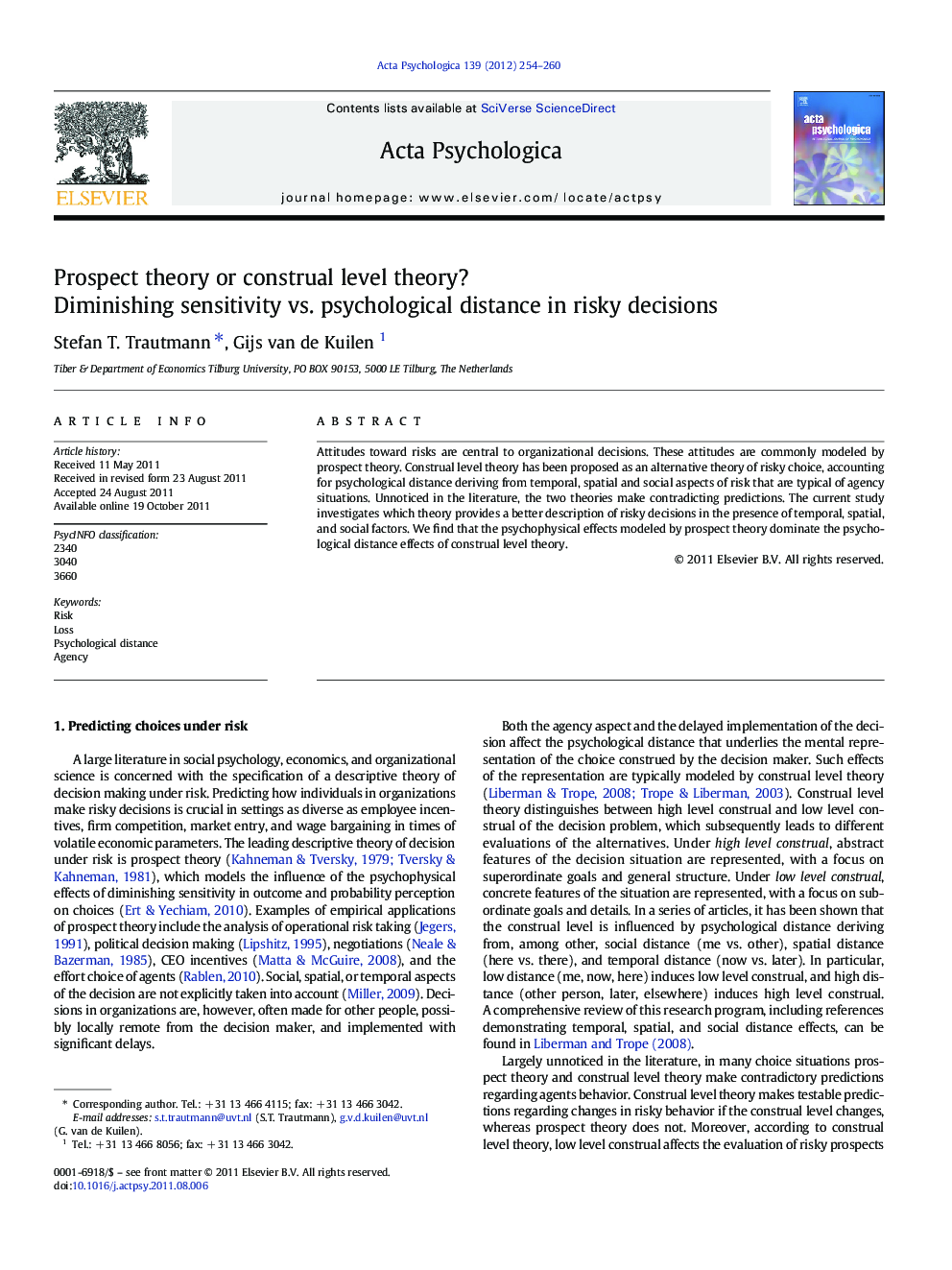| Article ID | Journal | Published Year | Pages | File Type |
|---|---|---|---|---|
| 920115 | Acta Psychologica | 2012 | 7 Pages |
Attitudes toward risks are central to organizational decisions. These attitudes are commonly modeled by prospect theory. Construal level theory has been proposed as an alternative theory of risky choice, accounting for psychological distance deriving from temporal, spatial and social aspects of risk that are typical of agency situations. Unnoticed in the literature, the two theories make contradicting predictions. The current study investigates which theory provides a better description of risky decisions in the presence of temporal, spatial, and social factors. We find that the psychophysical effects modeled by prospect theory dominate the psychological distance effects of construal level theory.
► Prospect and construal level theory make contradicting predictions in risky decisions. ► Construal level theory models temporal, spatial, and social factors in risk. ► Prospect theory models psychophysical factors in risk (diminishing sensitivity). ► In the current study, the psychophysical dominate the psychological distance effects. ► Prospect theory is descriptively valid in organizational settings.
